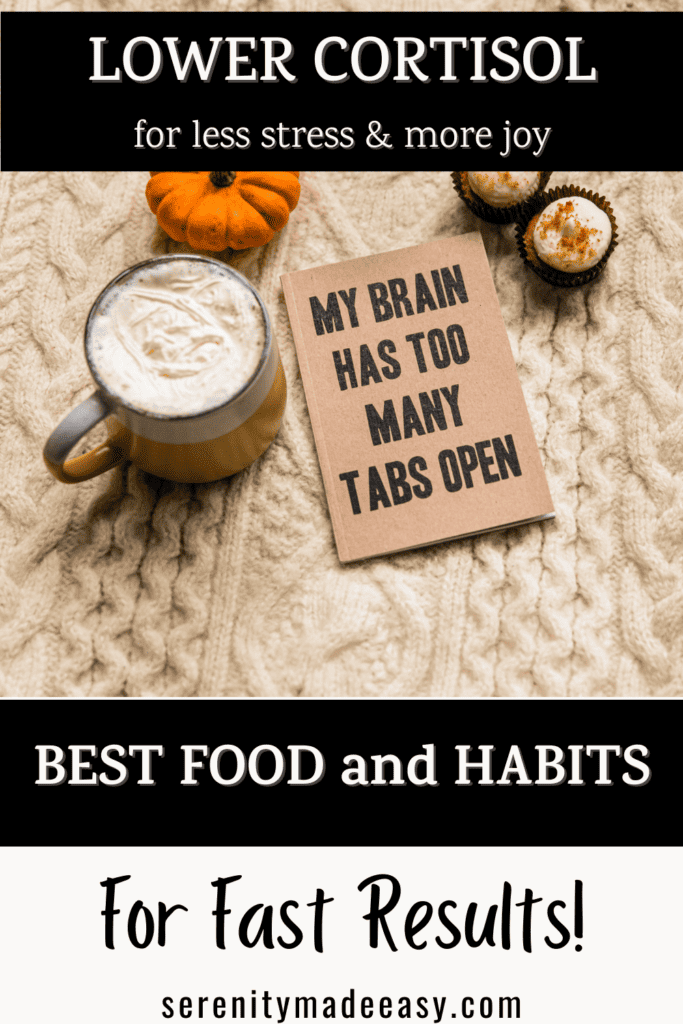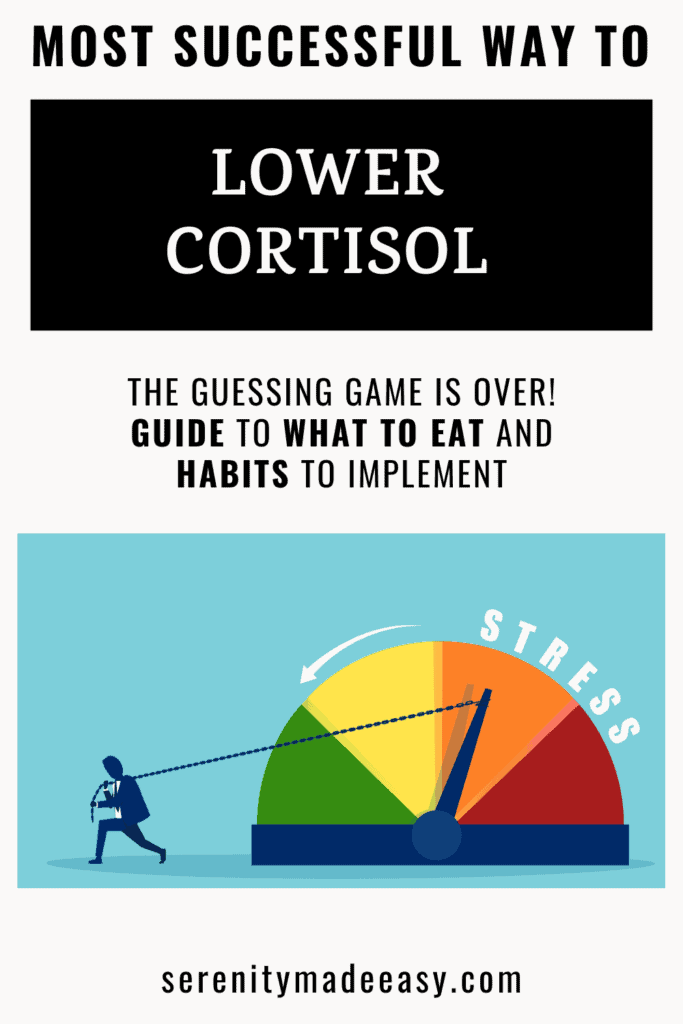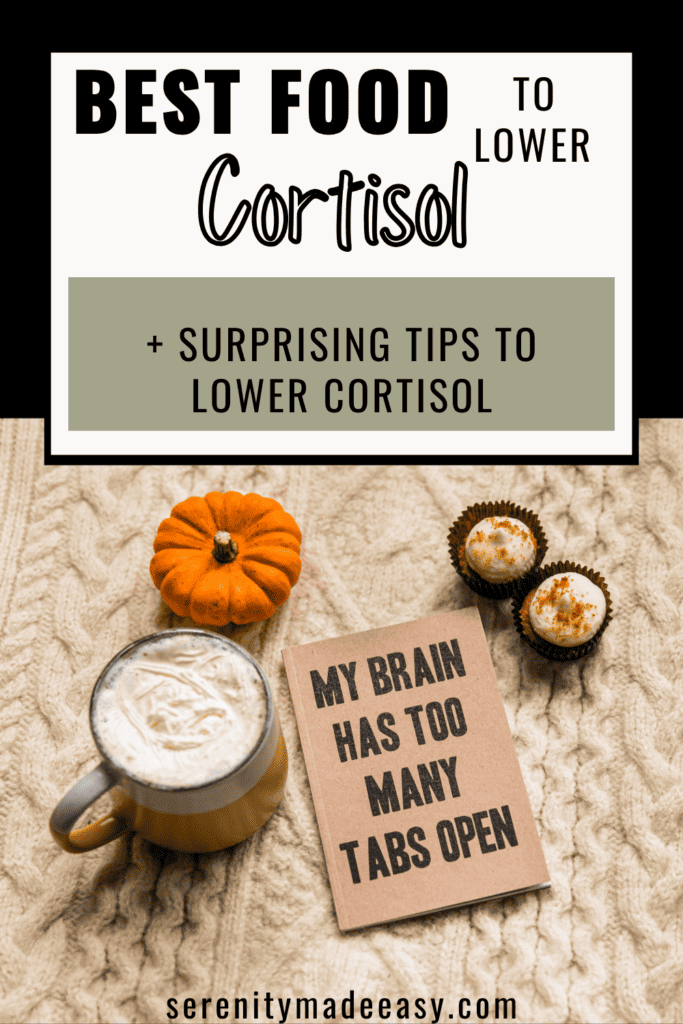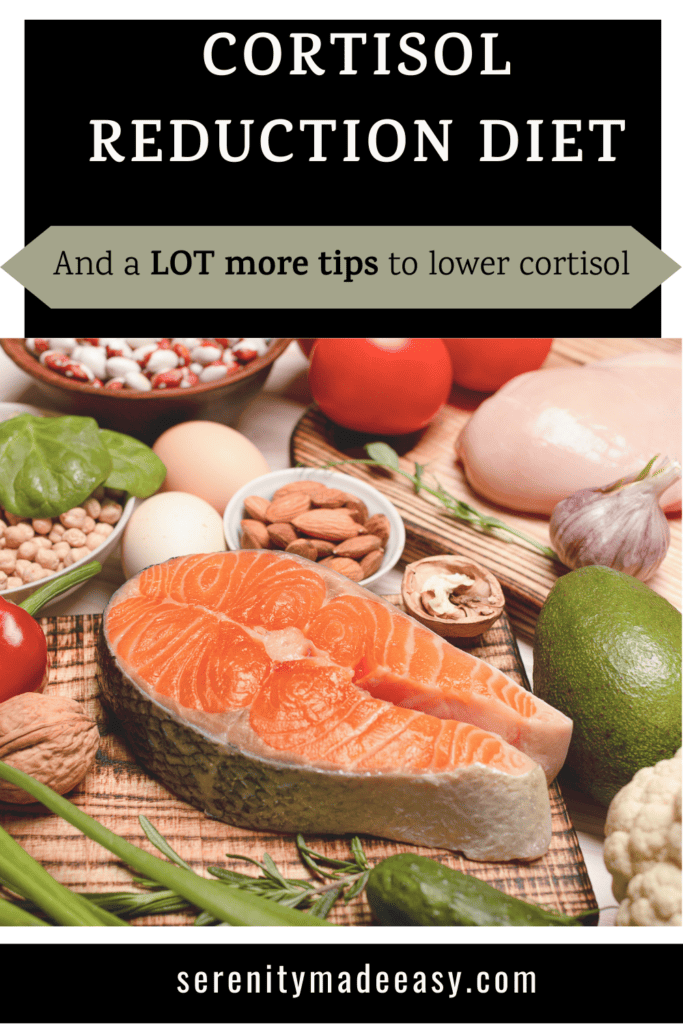This post may contain affiliate links. If you click one and make a purchase, I earn a small commission at no extra cost to you. It helps support the site so I can continue to offer great content to you!
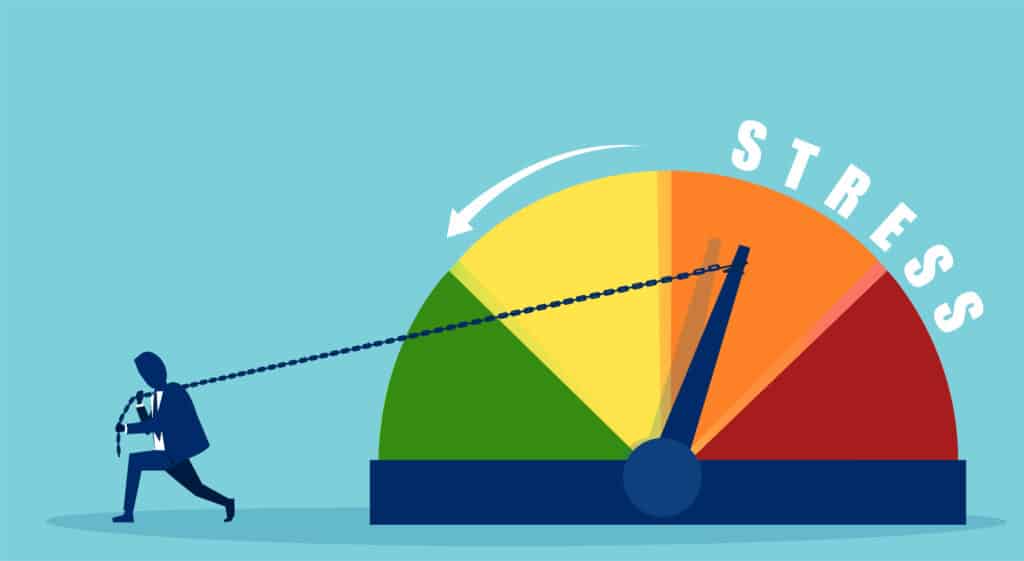
Lately, there have been numerous discussions about hormone regulation in the news. You may have seen ads online suggesting that you need to purchase products or supplements to manage your hormones. However, is it truly necessary to resort to these measures? Shouldn’t our bodies be able to regulate hormones naturally? In this article, we will concentrate on one hormone, in particular, and examine some useful habits and foods to lower cortisol levels naturally.
Important disclaimer: I am not a medical professional. Nothing in this article should be used to treat any medical condition. Always consult your Doctor before attempting to self-diagnose and self-treat a medical condition, The content of this article is a result of my own research and is for information and entertainment only.
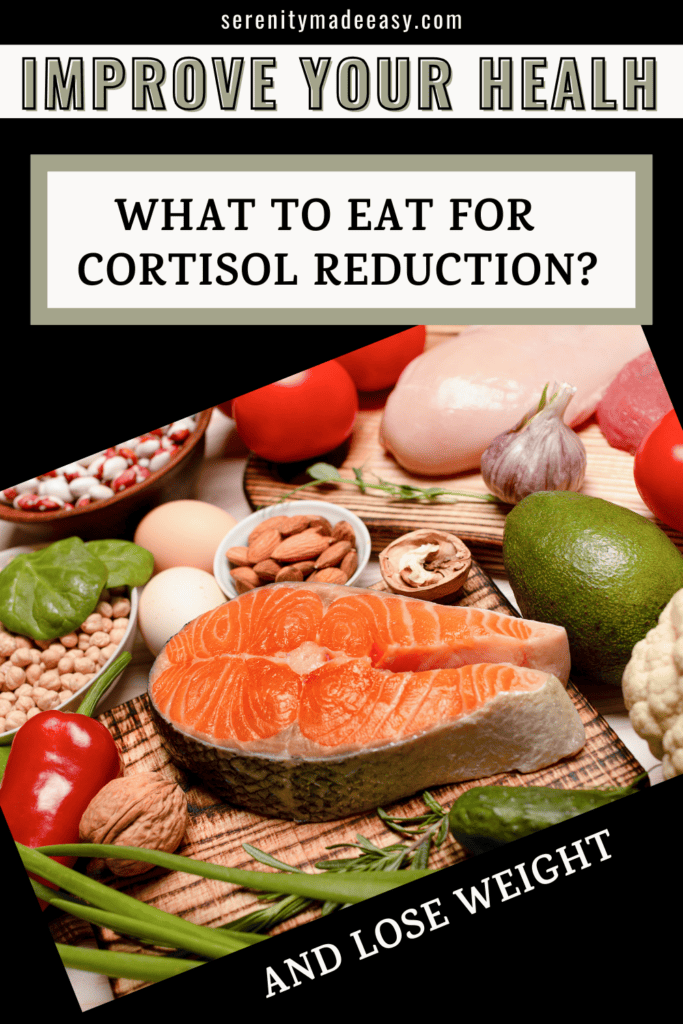
What is cortisol anyway?
You may have heard cortisol referred to as the “stress hormone.” Cortisol is a naturally produced hormone responsible for controlling several bodily functions. Primarily, cortisol is responsible for;
- Reduce stress response
- Help control the use of fats, proteins, and carbohydrates
- Suppress inflammation
- Regulate blood pressure
- Regulate blood sugar
- Help control the sleep/wake cycle
The hypothalamus and pituitary gland in your brain are responsible for its production and regulation. It then travels through your body and is “received” by the various organs, muscles, and tissues via cortisol receptors.
If you suspect that your cortisol levels are imbalanced, it’s best to consult with your doctor. They can test your blood to measure the exact amount of adrenocorticotropic hormone (ACTH).
Poor cortisol management may show up through a variety of symptoms such as:
- Weight gain in the abdomen and face
- Fatty deposit between shoulder blades
- Wide purple stretch marks on the abdomen
- Muscle weakness
- Elevated blood sugar
- Elevated blood pressure
- Acne
- Fatigue
- Headaches
- Anxiety
- Problems with focus and concentration
Let’s explore natural ways and foods to lower cortisol levels now that we know more about its functions.

Habits to lower cortisol levels
Because there are cortisol receptors all through your body, an imbalance can impact most of your body’s functions.
- Cardiovascular
- Respiratory
- Reproductive
- Nervous
- Immune
If your body is under stress, whether real or perceived, it releases cortisol. This stress response triggers various reactions throughout your system. It is crucial to learn to manage stress to keep cortisol at an optimal level.
Exercise
Regular exercise helps control and maintain an optimal level of cortisol. However, too much exercise can trigger too much cortisol. Finding the right balance is key. Experts recommend 150 to 200 minutes of low to moderate physical activity each week.
For more about how to maintain an active lifestyle, check out this article.
Incorporate mindfulness
Yoga, meditation, or breathwork are fabulous additions to your lifestyle to help lower your cortisol levels. Focusing on breath and changing its rhythm has a direct impact on the parasympathetic nervous system. It provides you with the ability to calm down and promotes rational thinking.
Here is a great resource to learn various breathing techniques.
Foster healthy relationships
As individuals, we crave social interactions and a feeling of belonging. Nevertheless, it’s crucial to acknowledge that not all connections contribute positively to our mental health. If a relationship is causing you significant stress and anxiety, seeking counseling and potentially ending that relationship could be a necessary step toward improving your well-being.
Secrets for a drama-free and happy relationship.
Get proper sleep
Is it the chicken or the egg?
Poor sleep impacts hormone regulation in your body. Hormone imbalance can also be responsible for bad sleep. How do we win?
Please note that there isn’t a universal solution for achieving a good night’s sleep. Nonetheless, to increase your chances of getting quality rest, it’s beneficial to concentrate on what you can manage. Creating a soothing nighttime routine can help you unwind, making it easier to fall and remain asleep.
For ideas on how to improve your sleep, check out this resource.
Organize your life
It’s common to feel stressed when we constantly feel like we’re not doing enough. Society often implies that our value is based on our level of productivity, which can perpetuate this unhealthy cycle.
It is important to stop comparing yourself to others and create a personalized system that helps you achieve your goals and fulfill your responsibilities.
Check out this calendar management tips article if you need support in this area.
Have fun
That’s right, laughter is one of the best remedies. it’s hard to feel stressed and laugh at the same time. Laughing and going a bobby that you enjoy can help your body release serotonin which is known as the “feel good” hormone.
Make sure to add a little fun to your day to keep your stress level low and lower cortisol.
Foods to lower cortisol levels

Nutrition is crucial to your health. Proper nutrition provides you with energy and helps you fight diseases and illnesses.
It’s widely known that not all foods are equal. It’s not just about having a varied diet to ensure you get all the necessary nutrients. Certain nutrients have a specific impact on your body, such as regulating hormones.
Although you can’t rely on food alone to manage your hormones, here are experts’ recommended foods to lower cortisol levels.
Foods rich in vitamin B
Examples: Beef, chicken, salmon, eggs, nutritional yeast, milk, legumes
Fermented foods
Examples: Yogurt, kimchi, sauerkraut, kombucha
Foods rich in omega-3
Examples: Fish, nuts, seeds, avocados, flax seeds, olive oil
Foods rich in Magnesium
Examples: Avocados, bananas, broccoli, dark chocolate, pumpkin seeds, spinach
Foods rich in Protein
Examples: Meat, legumes, quinoa, seafood, eggs, nuts
In conclusion
While you cannot control all of the external factors that contribute to increasing your stress level, you do have control over many components. I hope that this article has provided you with valuable insights and specific actions that you can implement in your life to help manage stress.j Let me know which healthy habits or foods to lower cortisol you plan to adopt.
Namaste
Cat xx
